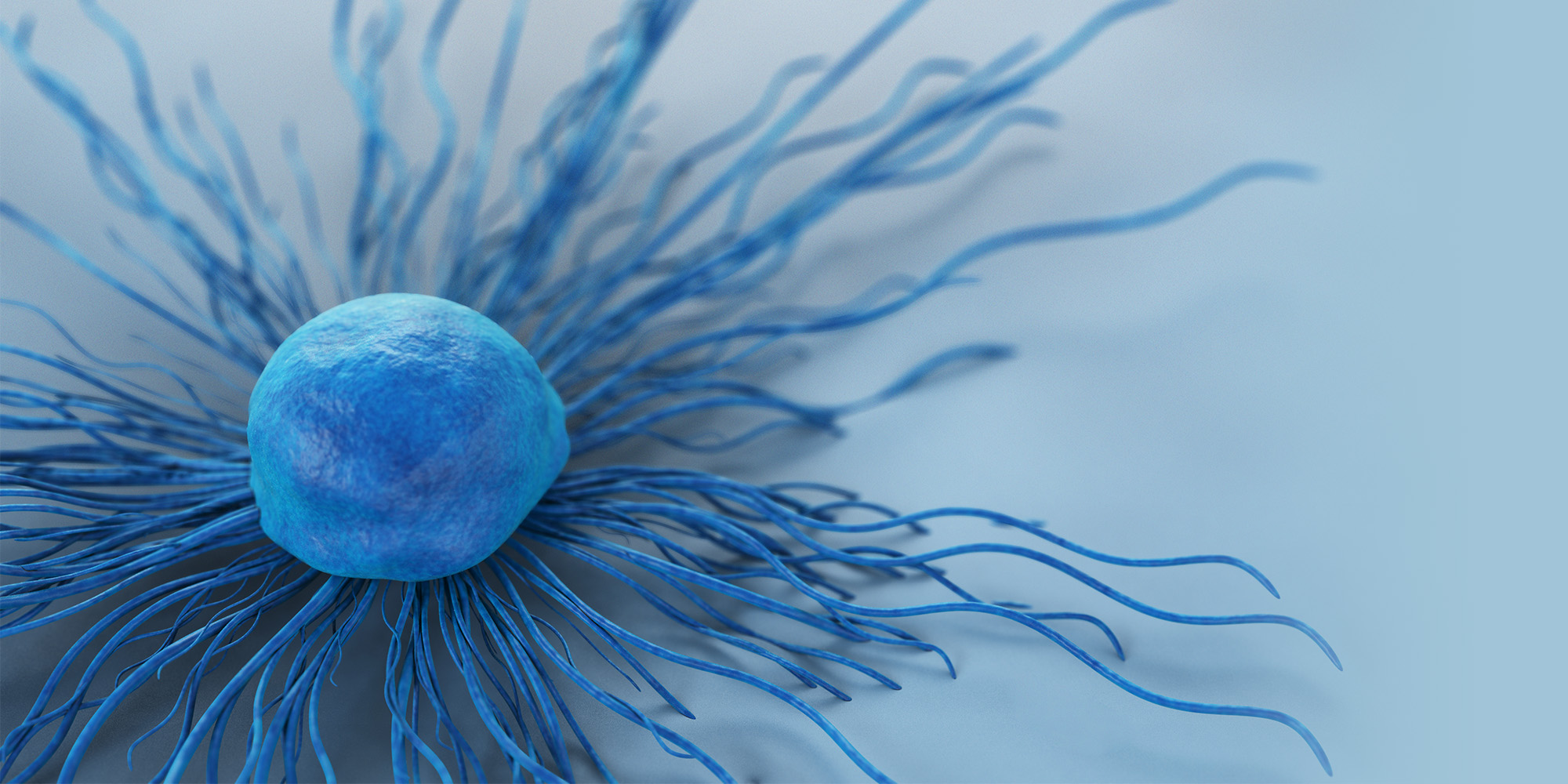Brachytherapy May Proceed Safely, Without Delay in Cervical Cancer Patients Following Uterine Perforation
April 13, 2021
Categories: cancer, Women's Health
Tags: Cancer
Findings could change current standard of care, ensure optimal treatment and save lives
MAYWOOD, IL (April 13, 2021)—A new study finds that brachytherapy, a common procedure that delivers radiation directly to cancer cells, may continue safely, potentially without delay or antibiotics, in cervical cancer patients following uterine perforation.
According to the World Health Organization, cervical cancer is the fourth most common cancer in women. Treatment for cervical cancer often involves brachytherapy combined with daily radiation therapy. Brachytherapy delivers radiation directly to cancer cells through a tube placed within the uterus.
“At times this tube can pierce the uterus and lead to a perforation,” said William Small, Jr., MD, lead study author and professor and chair of radiation oncology at Loyola Medicine and Loyola University Chicago Stritch School of Medicine. “Many clinicians will not proceed with the treatment when a perforation occurs. This can lead to delays in therapy that may increase the recurrence risk and potentially lead to worse survival rates.”
In the new study, “Uterine perforation during brachytherapy for cervical cancer: Complications, outcomes, and best practices for forward treatment planning and management,” researchers sought to determine the incidence of uterine perforations, review associated complications, and propose guidelines for the management of perforations after brachytherapy.
Researchers conducted a retrospective review of 123 patients with cervical cancer who received single or multiple high-dose therapy implants between April 2006 and May 2017 at Loyola University Medical Center. Patient CT and MRI images were reviewed to identify uterine perforation caused by the tandem, the tube placed within the uterus to deliver radiation. Acute and long-term complications during and after treatment were scored using the National Cancer Institute’s Common Terminology Criteria for Adverse Events Version 4.0.
Perforations were observed in 22 patients (17.9%) and 31 (6.4%) of the 482 total implants. Three patients developed acute infectious complications; two of these patients had mild urinary tract infections, which resolved without complications or treatment delays. The third patient had a complex perforation, received antibiotics and required a one-week treatment delay. Of the different categories of adverse events, only the rate of acute infectious complications among those with perforations (13.6%) versus those without perforations (3%) was significant.
“Our study notes that when perforation occurs, treatment can proceed without delay, potentially improving survival,” said Dr. Small, who is also director of Loyola’s Cardinal Bernardin Cancer Center. Treatment also may proceed without prophylactic antibiotics.
“If confirmed with additional data, the findings could lead to a new standard of care with the potential to save significant lives around the world,” said Dr. Small.
The study first appeared online March 17, 2021 in the journal Brachytherapy.
About Loyola Medicine
Loyola Medicine, a member of Trinity Health, is a nationally ranked academic, quaternary care system based in Chicago's western suburbs. The three-hospital system includes Loyola University Medical Center (LUMC), Gottlieb Memorial Hospital, MacNeal Hospital, as well as convenient locations offering primary care, specialty care and immediate care services from nearly 2,000 physicians throughout Cook, Will and DuPage counties. LUMC is a 547-licensed-bed hospital in Maywood that includes the William G. and Mary A. Ryan Center for Heart & Vascular Medicine, the Cardinal Bernardin Cancer Center, the John L. Keeley, MD, Emergency Department, a Level 1 trauma center, Illinois's largest burn center, the Nancy W. Knowles Orthopaedic Institute, a certified comprehensive stroke center, transplant center and a children’s hospital. Having delivered compassionate care for over 50 years, Loyola also trains the next generation of caregivers through its academic affiliation with Loyola University Chicago’s Stritch School of Medicine and Marcella Niehoff School of Nursing.
Established in 1961, Gottlieb Memorial Hospital is a 247-licensed-bed community hospital in Melrose Park that includes the Judd A. Weinberg Emergency Department, the Loyola Center for Metabolic Surgery and Bariatric Care, Loyola Cancer Care & Research at the Marjorie G. Weinberg Cancer Center, acute rehabilitation, a transitional care center, childcare center and fitness center. Founded in 1919, MacNeal Hospital is a 374-licensed-bed teaching hospital in Berwyn with advanced medical, surgical and psychiatric services and a 68-bed behavioral health program.
For more information, visit loyolamedicine.org. You can also follow Loyola Medicine on LinkedIn, Facebook, Instagram or X (formerly known as Twitter).
About Trinity Health
Trinity Health is one of the largest not-for-profit, faith-based health care systems in the nation. It is a family of 127,000 colleagues and more than 38,300 physicians and clinicians caring for diverse communities across 26 states. Nationally recognized for care and experience, the Trinity Health system includes 93 hospitals, 107 continuing care locations, the second largest PACE program in the country, 142 urgent care locations and many other health and well-being services. In fiscal year 2024, the Livonia, Michigan-based health system invested $1.3 billion in its communities in the form of charity care and other community benefit programs. For more information, visit us at www.trinity-health.org, or follow us on LinkedIn, Facebook, and X (formerly known as Twitter).
